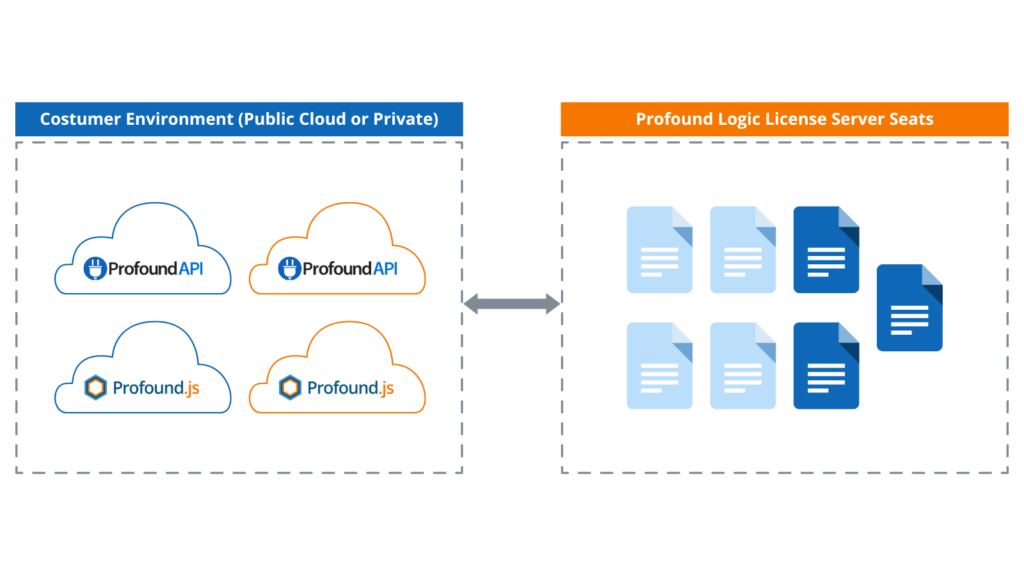Floating Licenses for Profound.js and Profound API
At Profound Logic, we are constantly improving our products to meet the evolving needs of our customers. An increasing number of customers are implementing or exploring dynamic, scalable infrastructures in both public and private clouds. In these elastic environments, managing license keys tied to specific hardware slows the adoption of these types of deployments.
Historically, our products, like many IBM i offerings, have been licensed to specific machines or partitions. This type of licensing carried over to our Node.js-based tooling as well. However, those tools, Profound.js, and Profound API, can run on any platform that supports Node.js.
Our customers are looking at how they can utilize these tools beyond the IBM i landscape. They want to utilize them in complex containerized environments using Docker, Kubernetes, and public cloud environments. In these environments, machine ids can change, so a license key cannot be tied to them.
So, how can Profound.js or Profound API be used in these types of environments?
Floating Licenses
Profound API and Profound.js now have the ability to use floating licenses. What is a floating license? It is a license that can be used by any single instance of the product no matter what system hosts it. So, if a customer wants to have up to 10 instances running at any given time, they would purchase 10 floating licenses and use them on any machines or containers on public clouds or their own infrastructure.
How does a floating license work?

When a bundle of floating licenses is purchased, the customer is issued an authorization code to identify those licenses. That authorization code is entered just like a normal license key when setting up containers, virtual machines, or normal physical machines. When an instance of the product is started, the software will communicate with our licensing server to request a floating license or “seat”. If there is a seat available, the floating license will be sent to the product, and the product will continue normally. When an instance shuts down, it will communicate with the licensing server to release the seat that it is using so that seat can be used by other instances. If a seat is not available when an instance starts, an error message will be issued indicating that there are no available seats.
Notable Differences
There are a few things to consider when purchasing floating licenses over system licenses.
- Instance Level – A floating license seat enables a single product instance. With system licenses, customers can run as many instances as they like on a single machine, but with floating licenses, each instance requires its own seat, even on the same machine.
- Communication with Licensing Server – Floating licenses are managed by a licensing server hosted by Profound Logic. Any servers using floating licenses must be able to access the license server via the internet.
- Managing Seats – In the event that an instance does not shut down properly, it is possible that a seat may not be released for reuse. In this situation, the seat would be automatically released if the product has not sent a message, or pulse, to the licensing server for 24 hours. This timeout is configurable if faster release is appropriate for a customer’s environment. Command line tools are also available for customers to check the number of seats in use and release a seat manually if needed.
Available Now
Floating licenses are already available in Profound.js and Profound API. If your futurization plans include cloud or container-based solutions, your account representative can build a custom licensing plan for you.
Don’t have an account representative yet, contact us at sales@profoundlogic.com and a representative will answer any questions you may have.
Share this blog:
